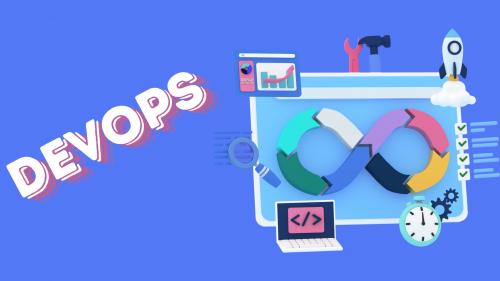The Impact of DevOps on Software Quality and Delivery Speed

How DevOps Practices Improve Software Quality and Accelerate Delivery
DevOps is a transformative approach to software development that combines cultural philosophies, practices, and tools to enhance the ability to deliver applications and services at high velocity. It aims to shorten the development lifecycle while ensuring continuous delivery with high software quality. This article explores how DevOps practices improve software quality and accelerate delivery by fostering collaboration, embracing automation, and integrating continuous feedback.
Enhancing Collaboration and Communication
At the heart of DevOps is a culture of collaboration and open communication between development, operations, and other stakeholders involved in the software delivery process. This cultural shift is essential for improving software quality and accelerating delivery.
Breaking Down Silos
In traditional software development models, development and operations teams often work in silos, leading to communication gaps, misunderstandings, and delays. DevOps practices break down these silos by promoting cross-functional teams where developers, operations personnel, QA engineers, and other stakeholders work together throughout the entire software lifecycle. This collaboration ensures that everyone is aligned with common goals and has a shared understanding of the project's requirements and constraints. The result is a more cohesive and efficient workflow, reducing the time to market and improving software quality.
Shared Responsibility and Accountability
DevOps fosters a culture of shared responsibility and accountability. In a DevOps environment, all team members are collectively responsible for the success of the project. This means that developers take ownership of their code in production, and operations teams are involved early in the development process. This shared responsibility ensures that issues are addressed collaboratively, and solutions are implemented more effectively. When everyone is accountable for the project's outcome, there is a stronger commitment to quality and performance.
Embracing Automation
Automation is a cornerstone of DevOps practices, driving efficiency, consistency, and reliability in the software delivery process. By automating repetitive tasks, DevOps teams can focus on more strategic and value-added activities, reducing human error and accelerating delivery.
Continuous Integration and Continuous Delivery (CI/CD)
CI/CD pipelines are fundamental to DevOps automation. Continuous Integration (CI) involves automatically integrating code changes into a shared repository multiple times a day, triggering automated builds and tests. This practice ensures that code changes are continuously validated, allowing teams to detect and fix issues early in the development cycle.
Continuous Delivery (CD) extends CI by automating the deployment process. Code changes that pass automated tests are automatically deployed to staging or production environments. This automation enables teams to release new features and updates rapidly and reliably, reducing the time to market and increasing the frequency of releases. By minimizing manual intervention, CI/CD pipelines reduce the risk of errors and ensure consistent, high-quality deployments.
Infrastructure as Code (IaC)
Infrastructure as Code (IaC) is another critical DevOps practice that involves managing and provisioning infrastructure using code and automation tools. IaC ensures that infrastructure configurations are consistent, repeatable, and scalable.
By treating infrastructure as code, teams can version control their configurations, enabling easy tracking of changes, collaboration, and rollback if necessary. Tools like Terraform, Ansible, and AWS CloudFormation allow teams to define infrastructure declaratively, automating the provisioning and management of resources. This automation reduces the complexity and time required to set up and maintain infrastructure, improving overall efficiency and reliability.
Integrating Continuous Feedback
Continuous feedback is a vital aspect of DevOps, providing real-time insights into the performance, quality, and reliability of applications and systems. By integrating continuous feedback mechanisms, DevOps teams can identify and address issues promptly, ensuring continuous improvement.
Automated Testing
Automated testing is a key component of continuous feedback in DevOps. Implementing various levels of automated testing, including unit tests, integration tests, and end-to-end tests, ensures that code changes are continuously validated. Automated tests provide rapid feedback to developers, allowing them to detect and fix issues early in the development process. This continuous validation improves code quality and reduces the likelihood of defects reaching production.
Monitoring and Observability
Continuous monitoring and observability are essential for maintaining the health and performance of applications and systems. DevOps teams use monitoring tools like Prometheus, Grafana, and New Relic to collect and analyze metrics, logs, and traces from their applications and infrastructure. This real-time data provides insights into system behavior, helping teams detect anomalies, diagnose issues, and optimize performance.
By setting up alerts for critical metrics and incidents, teams can respond proactively to potential problems, reducing downtime and improving user experience. Monitoring and observability also support post-incident analysis and blameless post-mortems, fostering a culture of continuous learning and improvement.
Fostering a Culture of Continuous Improvement
DevOps practices promote a mindset of continuous improvement, where teams regularly reflect on their processes, identify areas for enhancement, and implement changes to optimize their workflow.
Retrospectives and Iteration
Regular retrospectives provide an opportunity for teams to discuss what went well, what didn't, and how they can improve. These meetings encourage open communication, collaboration, and the sharing of ideas. By iterating on their processes and experimenting with new practices, teams can continuously enhance their efficiency and effectiveness.
Training and Development
Continuous learning is supported through training programs, workshops, and certifications. Organizations invest in their employees' development to ensure they stay up-to-date with the latest technologies and best practices. Encouraging team members to attend conferences, participate in webinars, and engage with the broader DevOps community promotes knowledge sharing and innovation.
Conclusion
DevOps practices significantly improve software quality and accelerate delivery by fostering a culture of collaboration, embracing automation, and integrating continuous feedback. By breaking down silos, promoting shared responsibility, and automating repetitive tasks, DevOps enhances efficiency, consistency, and reliability in the software delivery process.
Continuous feedback mechanisms and a focus on continuous improvement ensure that teams can detect and address issues promptly, optimizing their workflow and delivering high-quality software rapidly and reliably. As organizations adopt DevOps practices, they can achieve greater agility, innovation, and customer satisfaction in an increasingly competitive and dynamic market.
Learn More About
Edureka Reviews & Upgrad Reviews





Comments